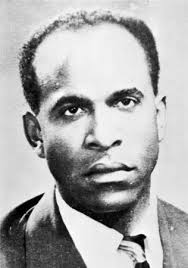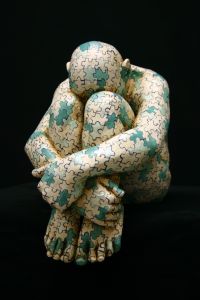Posted: Ottobre 7th, 2011 | Author: agaragar | Filed under: anthropos, racisme | Commenti disabilitati su Frantz Fanon
Cancellati nella tela del potere
di Miguel Mellino
Una riflessione sull’opera del teorico militante a partire dalla pubblicazione degli scritti psichiatrici. Testi fondamentali per le successive elaborazioni contenute nei «Dannati della Terra», nei quali il disagio mentale dei colonizzati può essere affrontato dal punto di vista clinico, ma svelando anche le condizioni di illibertà imposte dal colonialismo.

A cinquanta anni dalla morte di Frantz Fanon escono in Italia alcuni dei suoi più importanti scritti psichiatrici. È la casa editrice ombre corte a proporci questa suggestiva raccolta: Decolonizzare la follia, a cura di Roberto Beneduce – direttore del Centro Frantz Fanon di Torino – e corredata da un suo ampio e interessante saggio introduttivo. Si tratta di un testo che mancava, dal momento che ci consente di conoscere meglio uno dei lati paradossalmente meno approfonditi della vita e del pensiero di Fanon: quello legato alla sua attività di psichiatra. Come ci ricordano David Macey e Alice Cherki, autori delle migliori biografie di Fanon in circolazione, è difficile capire il suo percorso teorico-politico – la genesi del suo umanesimo anticoloniale e militante – senza collocare sullo sfondo della sua opera anche l’esperienza di psichiatra, sia nella Francia metropolitana che nell’Algeria e Tunisia coloniali.
[…]
Posted: Ottobre 4th, 2011 | Author: agaragar | Filed under: anthropos, comune, postgender | 6 Comments »
Bodies in Alliance and the Politics of the Street
by Judith Butler

In the last months there have been, time and again, mass demonstrations on the street, in the square, and though these are very often motivated by different political purposes, something similar happens: bodies congregate, they move and speak together, and they lay claim to a certain space as public space. Now, it would be easier to say that these demonstrations or, indeed, these movements, are characterized by bodies that come together to make a claim in public space, but that formulation presumes that public space is given, that it is already public, and recognized as such. We miss something of the point of public demonstrations, if we fail to see that the very public character of the space is being disputed and even fought over when these crowds gather. So though these movements have depended on the prior existence of pavement, street, and square, and have often enough gathered in squares, like Tahrir, whose political history is potent, it is equally true that the collective actions collect the space itself, gather the pavement, and animate and organize the architecture. As much as we must insist on there being material conditions for public assembly and public speech, we have also to ask how it is that assembly and speech reconfigure the materiality of public space, and produce, or reproduce, the public character of that material environment. And when crowds move outside the square, to the side street or the back alley, to the neighborhoods where streets are not yet paved, then something more happens.
[…]
Posted: Settembre 27th, 2011 | Author: agaragar | Filed under: anthropos | Commenti disabilitati su vaudou
TRA MENTE E CORPO
Effetti alchemici di mondi lontani
di Maria Teresa Carbone

Chiude oggi (ma resta visitabile online) la mostra che la Fondation Cartier dedica al «vaudou». Oggetti affascinanti su cui vale la pena riflettere, anche alla luce di scoperte scientifiche recenti.
Al giovane e sorridente guardiano della Fondation Cartier di Parigi che, notando l’espressione piuttosto intimorita di alcuni visitatori della mostra Vaudou (oggi l’ultimo giorno di esposizione, ma resterà virtualmente visibile online all’indirizzo http://www.vaudou-vodun.com ), si avvicina con garbo per rassicurarli – «non c’è da avere paura, sono solo oggetti» – si potrebbe forse utilmente consigliare la lettura di un libro uscito da qualche mese negli Stati Uniti per Rutgers, Sleep Paralysis: Night-mares, Nocebos, and the Mind Body Connection.
[…]


